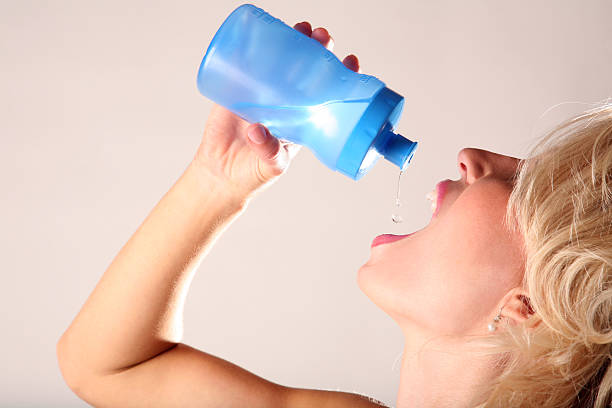Why your mouth is dry and what is dry mouth?
Dry mouth, also known as xerostomia, is a condition that can significantly affect quality of life. Dry mouth occurs when not enough saliva is being produced which eventually leads to discomfort. Saliva is important to produce because it is essential for digestion, speaking, maintaining oral health, breaking down food, neutralizing acids and washing away food particles and bacteria. If you’ve ever experienced that parched feeling in your mouth, you’re not alone.

Common reasons why your mouth is dry
- Medications: Many prescriptions and over-the-counter medications have dry mouth as a side effect. Common culprits of the side effects are antihistamines, pain killers and anti-depressants.
- Medical Conditions: Certain health conditions, such as diabetes, Sjogren’s syndrome and Parkinson’s disease, can affect saliva production. Additionally, undergoing chemotherapy or radiation therapy for cancer can damage the salivary gland, leading to dry mouth.
- Dehydration: Not drinking enough fluids can lead to dehydration, which in turn can cause dry mouth. If you ask yourself why your mouth is dry, try drinking some water first.
- Lifestyle Factors: Smoking or chewing tobacco can reduce saliva flow and worsen dry mouth. Alcohol consumption can also contribute to the problem, as it is a dehydrating effect.
- Breathing through the mouth: Conditions that cause nasal congestion may force people to breathe through their mouth, which can dry out the oral tissues. This could be a leading common factor as to why your mouth is dry.
Effects of Dry Mouth
- Dental Issues: Saliva is essential to dental health and a lack of it can lead to a higher risk of cavities, gum disease and bad breath. Saliva does help to neutralize acids and remove acid and remove food particles. So the absence of saliva can increase the risk of tooth decay.
- Difficulty Swallowing: Saliva plays a role in lubricating food which makes it easier to swallow. Without enough saliva, you may experience difficulty swallowing and even lead to choking.
- Altered Taste: Dry mouth can affect your sense of taste, making food seem bland or unpleasant.
- Sore Throat or Hoarseness: A dry mouth can lead to a sore throat and hoarseness, as the throat and vocal cords may become dry and irritated.
- Oral Infections: Reduced saliva flow can make your mouth more susceptible to infections, including oral yeast infections.
7 things to do when your mouth is dry
If you are dealing with dry mouth, there are several strategies you can try to alleviate the symptoms:
- Stay Hydrated: Drinking plenty of water throughout the day is important. Sipping water regularly can help keep a mouth that is dry, moist.
- Use Saliva Substitutes: Over-the-counter saliva substitutes and mouth moisturizers can provide temporary relief. These can come in various forms like, mouth sprays, gels and lozenges.
- Chew Sugar-Free Gum or Suck on Sugar-Free Candies: These can stimulate saliva production and help keep your mouth moist.
- Avoid Dehydrating Substances: Limit your intake of caffeine and alcohol, as they can contribute to dehydration. Avoid smoking and chewing tobacco as that will help as well when the mouth is dry.
- Practice Good Oral Hygiene: Brush your teeth with fluoride toothpaste and floss daily. This does include a water flosser too. Attend your regular dental check ups as they are important to monitor and manage any oral health issues.
- Use a Humidifier: Adding moisture to the air in your home can help prevent your mouth from drying out, especially during the winter months or in dry climates.
- Consult your Healthcare Provider: If dry mouth continues, it’s important to consult with your dentist or doctor. They can help identify the underlying causes and recommend appropriate treatments or making adjustments to your medications.
Dry mouth is a common issue, but it doesn’t have to be a permanent issue. Understanding the causes and effects can help you take proactive steps to manage the condition and maintain your overall and oral health. By staying hydrated, using saliva substitutes, and practicing good oral hygiene, you can find relief when your mouth is dry and improve the quality of your life.
If you’re struggling with persistent dry mouth, reach out and get professional advice. A healthcare provider can offer personalized recommendations to help you manage the condition effectively.
